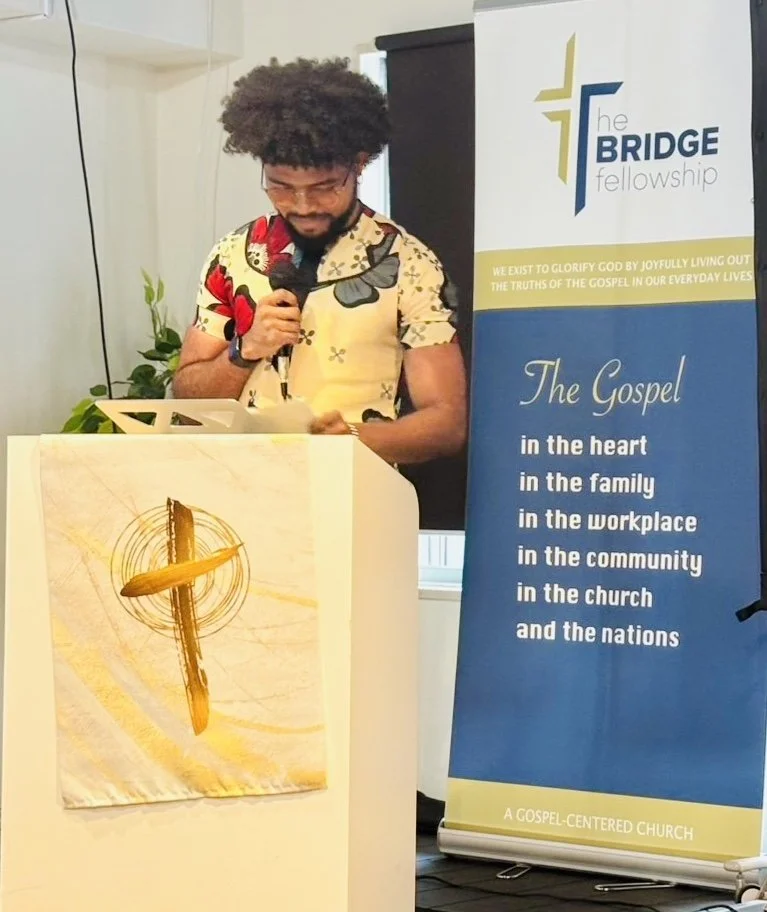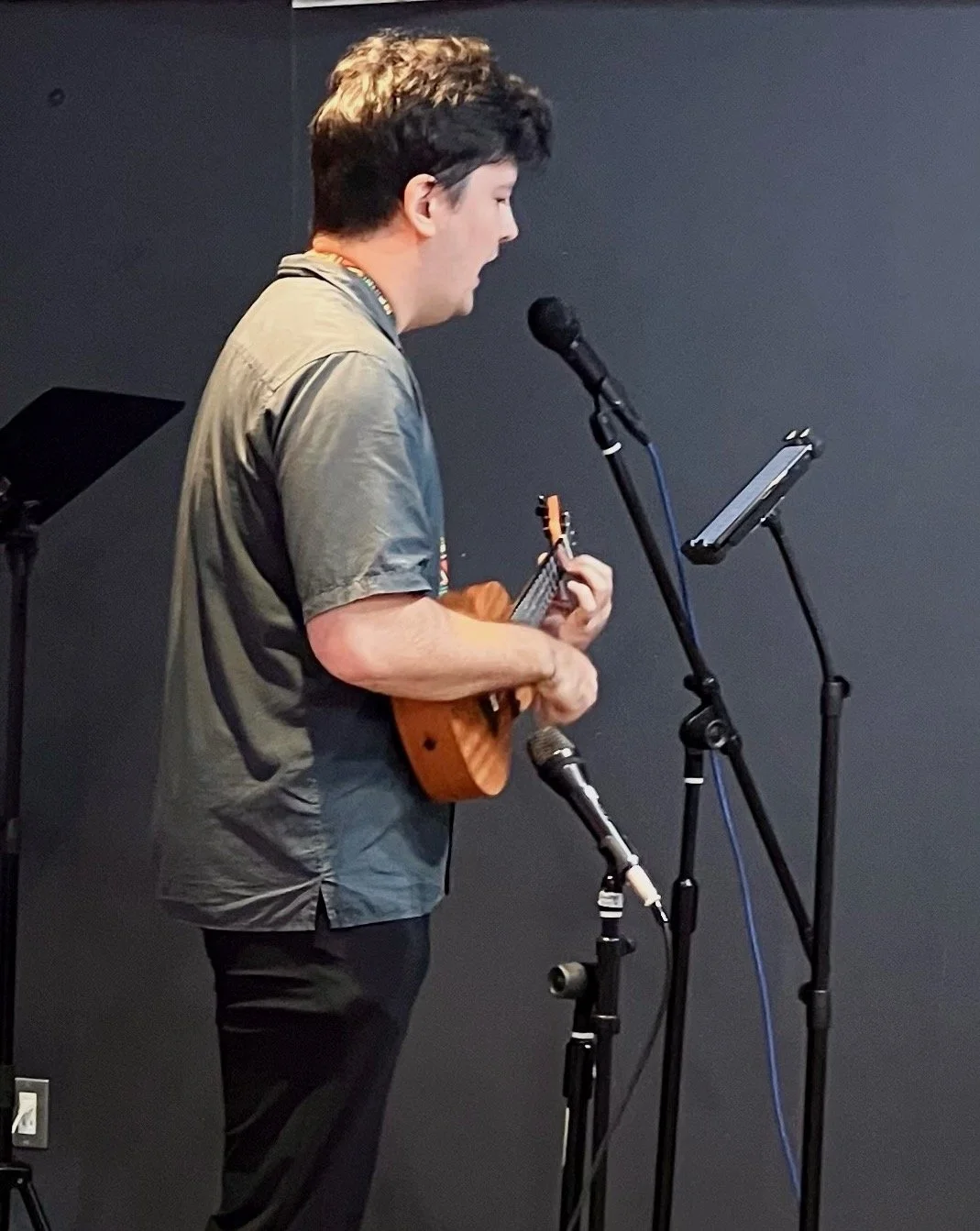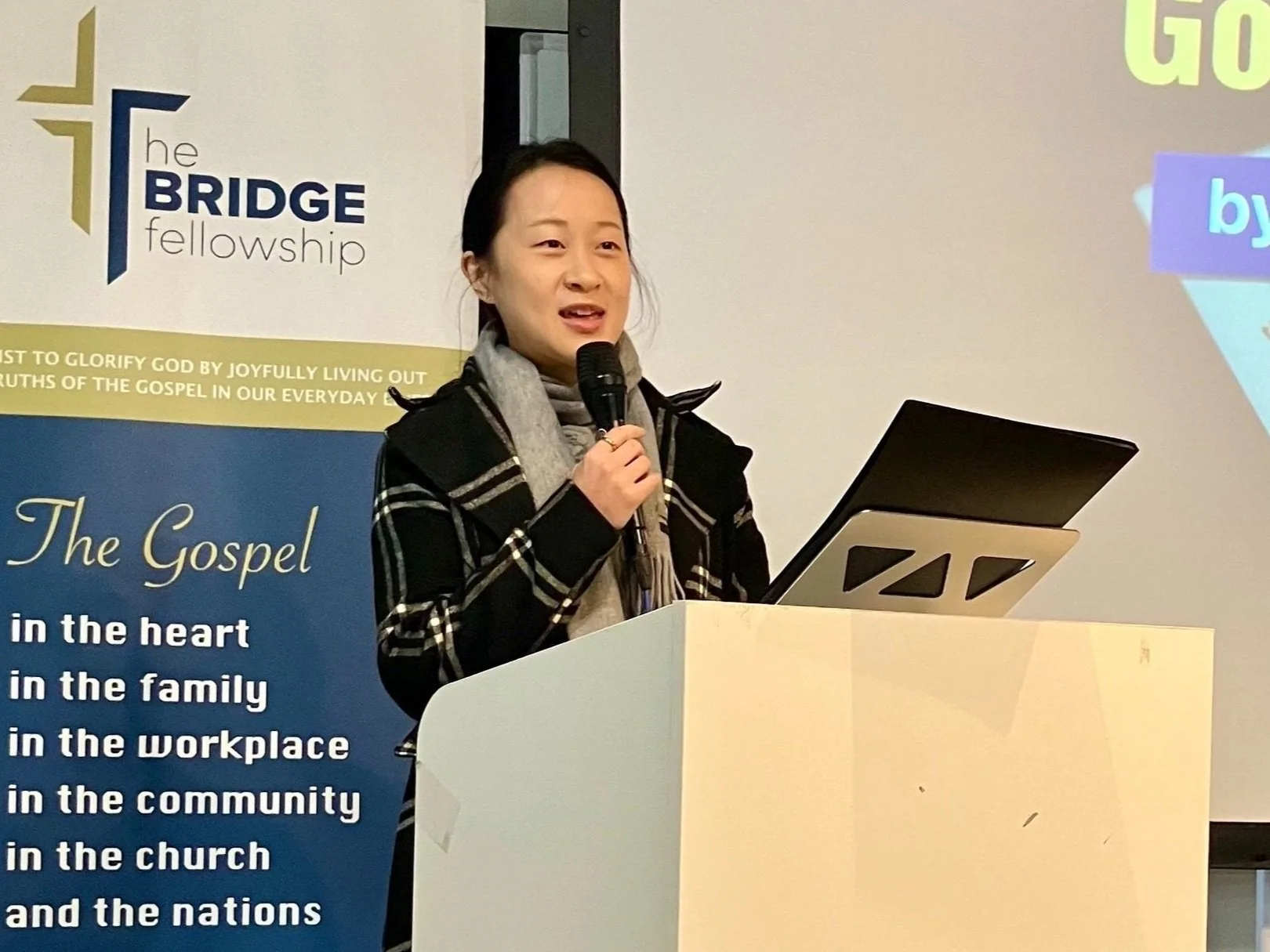Theme: God’s Goodness in Uncertain Times (Romans 8: 26--30)
Intro. In light of the Covid-19 pandemic, we will continue with a mini-series from Romans 8: 26- 30. We’ll pick it up from vv. 31 to 39 next week. But today, here is a question for us: Where do we turn when a global crisis that is beyond our control hits us? How do we navigate through life in uncertain and changing times? Here in this passage, Paul writing from Corinth in the 50s AD, talks about the tension between our present suffering and the hope of future glory. So, from our text, here are 3 insights we’re going to follow together. a) The Spirit’s help in our weakness. b) The good that God works in our suffering. c) The future glory that awaits us in Christ.
a) The Spirit’s help in our weakness.
26. Likewise the Spirit helps us in our weakness. For we do not know what to pray for as we ought, but the Spirit Himself intercedes for us with groanings too deep for words. 27. And He who searches hearts knows what is the mind of the Spirit, because the Spirit intercedes for the saints according to the will of God.
Q. Are you aware of the Spirit’s work in your life? Most Christians are quite familiar with God the Father, God the Son, but know very little of the Holy Spirit. From v. 1 until v. 17 Paul had been talking about the role of the Holy Spirit in the life of Christians. So here in v. 26, he says again, “Likewise the Spirit helps us in our weakness.” Paul does not mean that the Holy Spirit comes to help only when we don’t have strength. No. Christians can never live the Christian life on their own strength. And therefore they need the Spirit’s help all the time. That’s what the word weakness here means. Keep in mind, the Christians here lived in a culture where the Romans idolized strength and greatness. It was a society in which those who showed weakness were not respected. But the word weakness here means inability to restrain corrupt desires. Inability to bear trials and troubles. In other words, there is nothing Christians can do to add to their salvation, and there is nothing they can do to bear spiritual fruit on their own. And so Paul says, “the Spirit helps us in our weakness.” He helps carry a heavy load!
He wants the Roman church to know that the Spirit’s help is always present. Again, notice the weakness Paul is talking about here in v. 26. He says, “For we do not know what to pray for as we ought.” Have you ever suffered to a point that you don’t even know what you ought to pray? In times of tremendous suffering, Paul says, we do not know what to pray for as we ought. In this context, Paul is talking about how the whole creation has been suffering and groaning. In times of suffering, he says, it’s hard to pray. It’s hard to describe the pain in words, even to your friends or family members. Earlier in v. 22 Paul says the whole creation has been groaning together in the pains of childbirth until now. The image there is like a pregnant woman, laboring in childbirth pains! And in v. 23 he said, “we groan inwardly as we wait eagerly for...the redemption of our bodies.” There is a kind of suffering that is hard to express in human words, except by internal groaning. And many people feel it, we see it around us, and hear of it everyday in the news! And there is a kind of suffering that exposes more of our weakness. As C.S Lewis famously said: -
“We can ignore even pleasure. But pain insists upon being attended to. God whispers to us in our pleasures, speaks in our conscience, but shouts in our pains: it is His megaphone to rouse a deaf world”― (C.S. Lewis, The Problem of Pain).
See, pain reminds us that we are weak, that we are not in control. Pain shatters the illusion that we can be our own gods, ruling our own destinies. Suffering shatters our pride and awakens our desperate need for God! Pain insists that we listen to God’s voice!
V. 26. So Paul here says: the Spirit helps us in our weakness. He enters into our pain. He says, “the Spirit Himself intercedes for us with groanings too deep for words.” Here, the Spirit is groaning with us. He is closer than family members and closest friends in our suffering. He understands our deepest fears, frustrations and pains. In John 15: 26, the Holy Spirit is called The Helper. Someone who pleads our cause, an intercessor. And here He is pleading our case before God. He is interceding for us. He advocates for us. He comes to live inside the believer with strengthening grace. Your natural strengths can blind you to your need for reliance on the Spirit. See, if you want the Holy Spirit’s power, all you need is your weakness. Weakness shows your vulnerability. Weakness helps you realize how fragile, broken, and in need of help you are!
Notice again how Paul says: “For we do not know what to pray for as we ought.” BUT in v. 27, he says, “He who searches our hearts knows.” God searches our hearts like a searchlight. You can hide from others, but there is no hiding from God. You can hide your weakness and sins, but God searches our hearts. See, your weakness is not your enemy. It’s a channel for the Spirit’s strength. Often, in times of suffering, many people say: “What is God’s will for my life?” See, you may not know the will of God, or know how you ought to pray, but God knows the mind of the Spirit. He has sent His Spirit to help in your weakness. This is why (in v. 27) Paul says the Spirit intercedes for us according to God’s will. And so next we see:-
b) The good that God works in our suffering.
28. And we know that for those who love God all things work together for good, for those who are called according to His purpose. 29. For those whom He foreknew He also predestined to be conformed to the image of His Son, in order that He might be the firstborn among many brothers.
Remember how Paul said: “the Spirit intercedes for us according to God’s will”? What is God’s will here? Here in v. 28, Paul says, “we KNOW.” There are many things we don’t know in this world of suffering, confusion and chaos. But one thing we know for sure! We know how all of our suffering and groaning is going to turn out. Paul says, “we KNOW that for those who love God all things work together for good, for those who are called according to His purpose.” All things are going to work for good, not worse!
But who is this promise for? Paul says this promise is, “for those who love God.” That’s the first commandment. What you love more than God, the God of the Universe, is an idol- a false god. Any created thing, including ideas, that you love more than God is an idol (says Roms. 1). In times of suffering, the idols of the heart are shown to be disappointing. This is what God wants you to see. He wants you to turn from things that your heart loves more than Him. Why? Because He has called you “according to His purpose.” And because there is nothing better than God Himself.
If you’re not a Christian, you may be wondering: If God is good then why is there so much suffering in the world ? The Buddhist and Hindu answer is karma. Karma is a principle of cause and effect. According to karma, you get what you deserve based on your deeds. This cycle repeats itself. But Christianity says: God gives you what you don’t deserve. He works all things for your good even in your suffering. So why is there so much suffering in the world with a good God? If “all things work together for good” why is there so much suffering in the world with a good God? See, just because we can’t think of any reason does not mean God does not have a reason. Right here, Paul says, “We KNOW” God has a reason! What we know is that suffering is not meaningless in Christianity. God, in His infinite wisdom, is working for our good. Paul says: We KNOW there is good that God is working in our suffering. There is grace for those who are called according to His purpose. See, all things that are not good at the moment- sickness, diseases, suffering, evil, they work together for good in the end. All of those things that are working against you now, God is working for your good. And this promise is for you- “for those who love God” and “for those who are called.”
Now, what does it mean to be called? Paul says in v. 29, “For those whom He foreknew He also predestined.” That word foreknew means “to know before hand.” And predestined means “to choose beforehand.” Can you imagine? God knew you before the foundations of the world? He knew you, long before the ages began. He knows everything about you, your background, your history, your deepest longings, your deepest secrets, thoughts and sins. He knew you long before you were born. And He chose you, because He loves you! Paul says, in v. 29, “For those whom He foreknew He also predestined to be conformed to the image of His Son.” See, God knew you, chose you and called you to be in His Son. So, what is the good that God is working for you? He is conforming you to the image of His Son. See, if you’re a Japanese, you’ll become a much better Japanese. You’ll get an upgrade. God will conform you into a beautiful image- into the image of His Son. He will make you new, and increasingly beautify you. Paul says, in the midst of all weakness and suffering God is working to beautify us- to look more and more like Christ. If you’re a Christian, be encouraged; your sanctification will be complete and perfect one day. Even though the image of God in us has been distorted by sin, God is calling us to Christ. That’s what Paul says here: “in order that He [Christ] might be the FIRSTBORN among the brothers.”
Do you see how the Spirit lifts up Christ (in v. 29)? Paul says, Jesus is, “the firstborn among many.” The O. T places great significance on the firstborn. It speaks of superiority in position, authority, preeminence, a special status; with double portions of inheritance. See, Jesus is “the firstborn of all creation” (in Col 1:15). He was not created by anyone, but He is the sovereign Lord over all creation. In Lk 2:7, Jesus in His incarnation is called the firstborn son of Mary. In Col. 1:18, Paul says Jesus “is the beginning [He has always been there! No one created Him. Everything else had a beginning. But Jesus didn’t! He simply is! He is THE BEGINNING] the firstborn from the dead, that in everything HE might be preeminent.” And in Rev. 1: 5, Jesus is “the firstborn of the dead, and THE Ruler of kings on earth.” Finally, He will be exalted as the Firstborn when God gathers all of us as His children to His eternal home. So, finally we see:
c) The future glory that awaits us in Christ.
30. And those whom He predestined He also called, and those whom He called He also justified, and those whom He justified He also glorified.
Notice carefully how Paul says: Those whom He predestined He also called. That’s called effectual calling. The reason we came to Christ was because God called us by His Spirit. Yes, you made many mini-decisions in your journey of coming to Christ. But it was not your decisions that brought you to Christ. It was God regenerating you, while you were dead in your tresspasses and sins. He called you from deadness to life in Christ. And Paul says: Those whom He called He also justified. And those whom He justified, finally He also glorified. Beautiful! The sequence is significant. Our salvation is a work of God’s sovereign grace. From the beginning to the end- in God’s plan of salvation, you were predestined, you were called, and you were justified. And then finally you are glorified with Christ! The word glorified there means: given the highest honor, clothed with splendor, not to be corrupted. To be transformed. To shine without fading! Look again: The implications are massive here. Jesus did not come to make sinners into moralistic people. He died and rose again to make new people, a glorified people, who are transformed into His likeness. Without sin, without sickness, diseases and limitations or weakness. He called you in weakness and one day you will achieve true greatness as you are glorified with Christ when He returns!
Notice how there is nothing that Christians contribute to their salvation here (in v. 30). It’s all a work of God’s sovereign grace! Christians are chosen, called and justified through the finished work of Jesus on the Cross. Do you see that word justified? That’s a legal term- a courtroom language! The theme of justification by faith is one of the main themes in Romans. Justified means to be declared righteous, not guilty! So, if we are not justified by our works, but by faith, what does that do to our hearts? There’s an implication here: If you want to know how secure you are in your justification, look at how you respond when corrected. If God justified us by faith alone, why are we still trying to justify ourselves when people confront our sins or correct us? Aha! There’s still self-righteousness that we think that is worth defending, isn’t it? There is an inner lawyer in my heart that I often call up when people confront me or try to correct me. When I do that I bring myself back into the courtroom! I’m still trying to defend my works-righteousness. If the court is adjourned and the judge has declared me not guilty, but righteous, why is my heart still trying to justify? See, it means my heart is not yet secure in my justification. It shows that my heart is not secure in the truth that I am justified by faith. So, if God is the One who justified us by faith, we, of all people, are to be the most humble! We would be free!
Look again here! What is God’s plan for us from the beginning of time? He predestined us. The God of the universe, long before the foundations of the world, predestined us. And He called us through the preaching of the Gospel. There is nothing we have done to deserve this. Jesus received the wrath of God we deserved in order that we might be justified by His work- not our works. There is nothing we have done to add to God’s sovereign plan. He called us by grace in His Son. And He justified us. He declared us righteous, not guilty, because Jesus took our guilt and condemnation (v. 1)!
So, if we really believe (functionally) that God is the one who justified us, we will feel less and less self-righteous. That’s sanctification! We will feel less and less defensive, when corrected, if Christ is our defense! Why? Because self-righteousness is not worth defending! It has been crucified with Christ! If God’s justifying grace is ravishing to you heart, you’ll feel less self-righteous! And you won’t look down your nose on others! How can you? Look at this verse again! (v. 30). If God is the One who justified us by faith, our works will not make us proud. Serving others will not make us proud! Ministry will not make us proud! Because this verse says there is nothing we bring to the table of grace. It’s all God’s sovereign grace working in us from the beginning to the end. Paul says we have received the call of God through His Son. God called weak people who cannot contribute anything to their redemption. Why is this such a great hope for us? Because if He has predestined us, everything is in His sovereign hands. If He has called us and justified us by His grace, not as a result of our works, He will see our salvation to the end. Our future is secure!
Why is this such a great comfort? Look again at the word “glorified!” It’s in the past tense! This is beyond all comparison! Paul said earlier, in v. 18, “For I consider that the sufferings of this present time are not worth comparing with the glory that is to be revealed to us.” Our future glory has been secured by Jesus’ work on the Cross.
Do you remember how Paul said earlier, in v. 28, “all things work together for good for those who are called” ? See, this is the “good” that God is working in you to the end of your life, until Christ returns. Even though you are weak, struggling to pray, even though you’re still imperfect and sinful, even though you are groaning because of pain , frustrated and suffering, God is working it all together for your good. And this will lead to final glorification with Jesus (v. 30). He will glorify us with Christ when Christ returns. This is why Paul said earlier, in v. 17, that we’re “—fellow heirs with Christ, provided we suffer with Him in order that we may also be glorified with Him.” No sufferings, no pain, no guilt, no evil, no virus, no sin, no depression, no death shall stand in the way of God’s plan to redeem and restore this entire creation. No longer will we “fall short of the glory of God” (as Rom. 3:23 says). God’s plan to save us began from eternity past to eternity in the future, and God will carry out this plan perfectly. He does this for our good and for His glory!
So, let’s rejoice! Let’s rejoice that our future is glorious and secure in Jesus! Rejoice and be glad! Let the nations be glad and sing for joy! Christians, of all people, are to be rejoicing for their future has been secured in the finished work of Jesus. And let’s share this great hope with others who are fearful, far from us, and weak like us, so that they too can become part of God’s plan of salvation.
| Pastor Joey Zorina | March 22 | Sunday | ©TheBridgeFellowshipTokyo |







